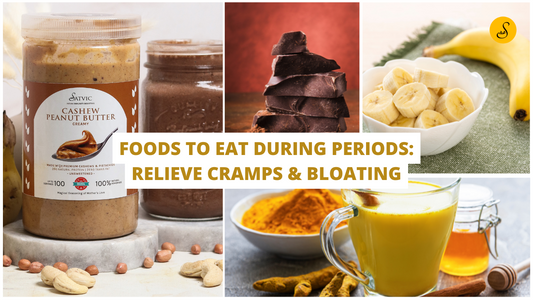Winter Hair Care vs Summer Hair Care: 10 Differences to Know
Ever wonder why your hair behaves differently in winter and summer? If your hair's got a mind of its own and changes its nature with each season. Well, you're not alone! Let's find out the nitty-gritty of how to keep your locks looking fab in every season without getting too serious about it.
Picture this: winter comes, and your hair's dry and brittle. Then, bam! Summer hits, and it's a new set of challenges – frizz and sun damage. You name it. But don't stress, we've got your back! In this hair care guide, we're breaking down the secrets to keeping your hair on point, whether battling the winter chill or soaking up the summer sun. So, grab a seat, and let's talk about improving your hair all year round.
Hydration Matters
Winter: Cold, dry air can strip the hair of its natural moisture, which leads to dryness and brittleness. Deep conditioning and moisturizing masks are essential during winter to replenish lost hydration. You can even adopt a homemade diet plan for hair growth containing hydrating and moisturizing elements to keep your body nourished from within.
Summer: Exposure to sun, saltwater, and chlorine can dehydrate hair. Using a leave-in conditioner and protecting your hair with a hat or scarf can help retain moisture during summer.
Temperature and Styling
Winter: Cold temperatures can make hair more prone to breakage, especially when styling. Lower the heat on styling tools and consider protective hairstyles like braids or buns to minimize damage.
Summer: High temperatures can cause excessive sweating and oil production on the scalp. Wear lightweight hairstyles and use heat-protectant products when styling to shield your hair from the sun's rays.
Sun Protection
Winter: While the sun may not feel as intense during winter, UV rays can still damage your hair. Use hair products with UV protection to shield your strands from the sun.
Summer: UV rays are more potent in summer, making sun protection crucial. Invest in a good-quality sunscreen for your hair or wear a sunhat to protect your locks from sun damage.
Cleansing Frequency
Winter: Cold weather often means less sweating, and you may not need to wash your hair as frequently. Overwashing can strip the hair of natural oils, which leads to dryness. Chemical treatments can cause your hair to dry out even further, so we suggest that for long-term remedies, you start with home remedies for dry and frizzy hair.
Summer: Sweating increases in the heat, requiring more frequent hair washing. Use a mild shampoo and then conditioner to prevent excessive dryness.
Moisture Locking Techniques
Winter: Seal in moisture by using oil-based products or serums to prevent dryness and static. This helps to create a protective barrier against the harsh winter elements.
Summer: Go for water-based moisturizers to keep your hair hydrated without weighing it down. Lighter products can help combat frizz and keep your hair looking fresh.
Hair Color Protection
Winter: Cold temperatures and dry air can quickly cause color-treated hair to fade faster. Use color-protecting products and consider touch-ups to maintain vibrant hues.
Summer: Sun exposure can also lead to color fading. Wear a hat or use UV-protective sprays to shield your colored hair from the damaging effects of the sun.
Static Control
Winter: Static electricity is a common issue in cold, dry air. Combat static by using an anti-static spray or applying a small amount of leave-in conditioner to the ends of your hair.
Summer: Humidity in summer can lead to frizz. Use anti-frizz products to control flyaways and maintain a sleek look.
Scalp Health
Winter: Cold weather can dry out the scalp, leading to itchiness and dandruff. Use a moisturizing shampoo and consider scalp massages to stimulate blood flow and even promote a healthy scalp.
Summer: Sweat and increased oil production can contribute to a greasy scalp. Choose a gentle, clarifying shampoo to cleanse your scalp without stripping it of essential oils.
Protective Styles
Winter: Protective hairstyles like braids, twists, or buns can shield your hair from harsh winter winds and prevent breakage.
Summer: Updos and protective styles can also be beneficial in the summer, keeping your hair off your neck and minimizing exposure to the sun.
Trimming Frequency
Winter: Cold weather can make hair more prone to breakage and split ends. Regular trims during winter can help maintain healthy ends.
Summer: Exposure to the sun, salt water, and chlorine can also lead to split ends. Consider more frequent trims during the summer to prevent further damage.
Winter Hair Care vs Summer Care: One Product to Rule Them All
Satvic Foods' Shikakai Hair Therapy Powder is the ideal hair care solution for both summer and winter. In summer, its unique blend of Shikakai, Reetha, and Indian Gooseberry ensures a grease-free, refreshed scalp, combating the effects of heat and humidity. Meanwhile, Fenugreek Seeds and False Daisy moisturize and eliminate dryness during winter, preventing scalp flakiness. The Vitamin C-rich Indian Gooseberry promotes hair growth, ideal for countering seasonal shedding. Free from chemicals, this powder offers a natural alternative to harsh shampoos, making it a versatile, cost-effective, and nourishing choice for year-round hair care.
Start Your Year-round Hair Care Journey With Satvic!
Winter Hair Care vs. Summer: Differences to Know
Adapting your haircare routine to the changing seasons is important for maintaining healthy and beautiful locks. By understanding your hair's specific needs in winter and summer, you can tailor your regimen to address the challenges posed by each season. Whether it's combating dryness in winter or protecting against UV rays in summer, a season-specific approach to hair care will keep your strands looking their best year-round.
Promote Hair Growth and Battle Hair Loss With Satvic Today!
No comments







comments